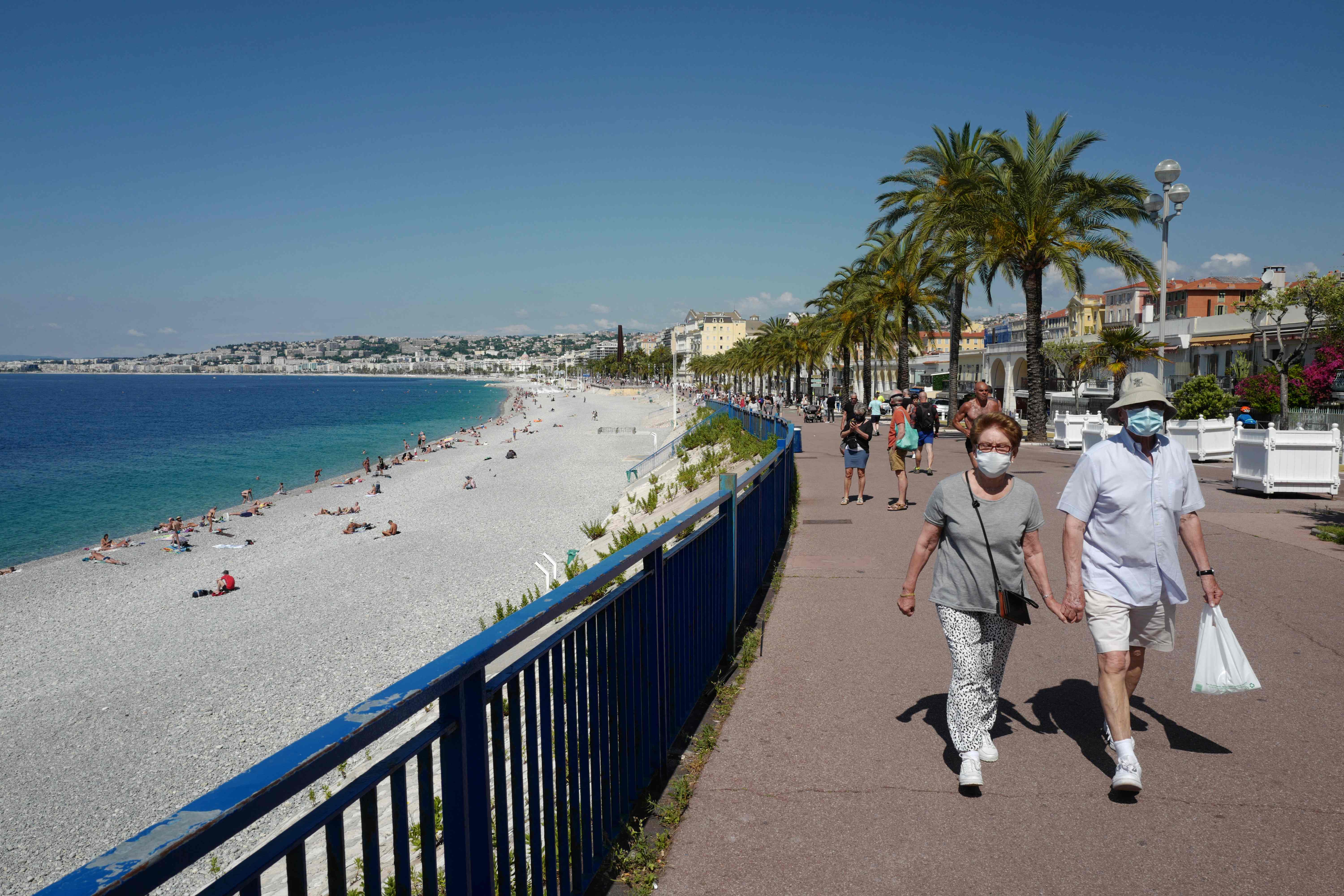Marine Le Pen sets sights on French Riviera breakthrough as far-right hopes rise for regional elections
The far-right Rassemblement National hopes to gain control of one of the 13 regions for the first time, reports Chris Bockman

The French regional elections should be about school funding, transport policy, promoting tourism and alternative energy solutions but you would never know it from the campaigning. Fears over crime and illegal immigration have dominated much of the agenda – issues over which the regions have little influence.
However this weekend’s regional elections are being closely watched for a simple reason: they are the last ones before the presidential election in April next year.
Many observers say what happens during this weekend’s vote, and the second round next weekend, will provide crucial insight into where things could be heading next year.
“These elections are the stepping stone towards the presidential elections because some of the mainstream candidates, especially in the northern regions, are hoping if they win that will provide them with the lift-off to run for president,” explains Jean-Michel Ducomte, a lawyer and professor of politics at the Toulouse-based Institute of Political Studies.
“For others on the far-right – they want to make crime the key issue in the presidential race,” he adds, “so they want to use these elections which usually generates little enthusiasm as a dummy run to test that theme.”
At the last regional elections in 2015, the far right Rassemblement National (RN) party, formerly known as the Front National, picked up more than 350 seats across France. It has yet to win control of a region however. This time it believes it can do it – and unlike before, its opponents genuinely agree.
Outside the urban economic powerhouses like Montpellier and Toulouse, the far right is picking up support along the coast with high levels of poverty and in what are called peri-urban communities
As is often the case with the far right, the focus is on the south of the country – its traditional stronghold. It’s no coincidence the leader of the RN, Marine Le Pen, is ending her campaign tour there.
There is widespread agreement on all political sides that if there is one region that the far right could win, it is Provence-Alpes-Cote d’Azur known as PACA. It’s a region of vast disparity, home to extreme cosmopolitan wealth but juxtaposed to some of the poorest inner cities in France stretching from Nice, to Toulon, to Marseille.
Marine Le Pen’s optimism that she can win this region, with its population of five million, is down to the candidate her party is fielding there: Thierry Mariani.
A former minister under ex-President Nicholas Sarkozy, he defected from his party, les Republicains, and joined the far-right. He is just the kind of experienced mainstream politician that Ms Le Pen has been trying to attract to shake off the image that her party is still full of extremists including anti-semites and racists.
At the moment, Mr Mariani is ahead in the region’s opinion polls and his supporters often say they want new, honest leaders. But Mr Mariani has plenty of what the French idiomatically describe as “casseroles” or saucepans tied to his ankles. These include murky links to the Kremlin, as well as meetings in Damascus with the pariah Syrian President Bashar al-Assad.
Added to this, the number two on Mariani’s election list, Philippe Vardon is a former Nazi sympathiser, which he now puts down to misspent youth.
It is Mr Mariani’s determination to evict illegal immigrants arriving mainly from North Africa that has appealed to voters in this region, despite his chequered past.
“It’s a contradiction,” says Professor Dumont. “The more disruptive and radical the far-right candidates appear to be, the more the voters seem to think they are pure and new despite their very long and complex political baggage.”

The RN’s ambitions are not just confined to the southeast: neighbouring Occitanie, with a population of six million is also up for grabs – once unthinkable in this former socialist stronghold.
The far-right has made big gains in recent years here, with its mayors now running many towns. Last year, it secured its biggest win so far at Perpignan near the Spanish border. The new mayor, Louis Aliot, is Marine le Pen’s former boyfriend.
“Outside the urban economic powerhouses like Montpellier and Toulouse, the far right is picking up support along the coast with high levels of poverty and in what are called peri-urban communities,” says Laurent Dubois, a prominent political analyst for France 3 television network.
“It’s not quite the countryside and not quite the suburbs... where the wealth has not filtered down from the cities and residents feel they have been abandoned. These are often the same people who became anti-President Macron ‘yellow vest’ or ‘gilets jaune’ protestors.”
In Occitanie the far right found its respectable poster child candidate in the shape of a former judge Jean-Paul Garraud. It now looks too close to call in the first round against the current president of the regional council – socialist Carole Delga.
Even before President Macron was physically assaulted during a walkabout near Avignon earlier this month, the Socialist Party (PS) leader admitted she has received dozens of deaths threats and has to travel with bodyguards.
Last March, a mob from an extremist far-right group broke into the regional assembly in Toulouse when it was in session and tried to lynch her.
This though is not the first time the far-right have surged in elections only to fall flat in the run-off second round.
Mainstream parties on the right and left usually make an unwritten agreement to vote tactically – known as “le front Republican”, where the party least likely to win withdraws in favour of a rival in order to beat the far-right.
Nowadays, Mr Dubois says the old rules no longer apply.
“Over the past 15 years, voters have become tired of being asked to vote for parties in the second round that are they are opposed to, just to keep the Rassemblement National and its predecessor, the Front National, out.
“The centre right, seeing its support eaten away by both the far-right and President Macron’s LRM party, has no interest in seeing its core remaining supporters forced to make unnatural choices this time round.”
Join our commenting forum
Join thought-provoking conversations, follow other Independent readers and see their replies
Comments